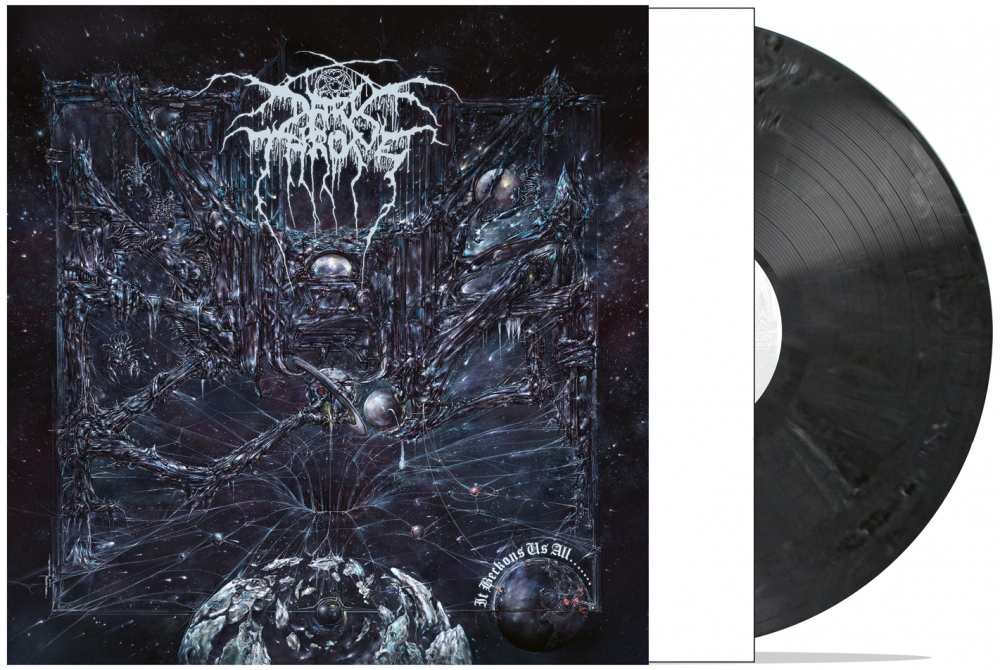Whilst Korn have carved an uneven path through the minefield of critical acclaim since they first burst upon a scene unprepared for their uniquely visceral, solo-free brand of metal in 1994, they have managed to maintain a fan base entirely uninterested in the vicissitudes of the music press. Part of the band’s success has been thanks to a series of subtle reinventions that saw the band embrace electronica just as nu-metal reached its critical nadir (‘see you on the other side’ & ‘Korn II’) and dub step before every band and its dog incorporated similar elements (‘the path of totality’) and, in both cases, the band managed to do so whilst staying largely true to the blueprint that they laid down back on that blistering debut album. Nonetheless, Korn did not always have an easy ride and the loss of guitarist Brian ‘Head’ Welch was a blow from which the band just could not seem to recover. Musically they remained on form, but the absence of a full-time replacement suggested that the band just could not quite come to terms with the manner of his departure. As a result, when Head returned, so the band upped their game with the resultant ‘Paradigm shift’ proving to be an electrifying set that saw the band push themselves to deliver a vital album that rode the fine line between delivering a more traditional Korn sound whilst not entirely turning its back on the sonic invention of the band’s more recent output. It was an unequivocal success and it remains a high point in the band’s substantial canon, thus raising expectations sky high for ‘the serenity of suffering’, Korn’s twelfth album.
From the moment the damaged riff of ‘insane’ kicks in, there’s a feeling that the enthusiasm that powered ‘the paradigm shift’ has carried over onto the new record. Juxtaposing discordant tones and battering riffs in a manner that harks right back to the band’s debut, ‘insane’ is classic Korn with a contemporary twist. The production is, once again, crushing and yet there is plenty of space allowing those twisted harmonies to breathe even as the guitars descend into a sludgy hell underpinned, as ever, by Fieldy’s ridiculously down-tuned bass. It’s a cracking start to an album that only improves when the jittery intro to first single ‘rotting in vain’ suddenly explodes into life. Pairing a riff that is a guaranteed dance-floor filler with Jon Davis’ typically anguished vocals, ‘rotting in vain’ is the best Korn anthem since ‘got the life’ sent rock fans everywhere into a foaming mass and further evidence of just how electric the chemistry is between the band members right now. An album highlight, ‘Black is his soul’ is a patented Korn groove complete with electronic overdubs from Sluggo and a devastating chorus that has stadium-filling-anthem written all over it. However, whilst the band are clearly on fine melodic form, there is also a brutal energy to proceedings, and that is nowhere more obvious on ‘the hating’, a track that takes the formula developed on ‘somebody someone’ and supercharges it. Perhaps the album’s most anticipated song is the dynamic thrust of ‘a different world’ which sees Slipknot’s Corey Taylor join the band. Corey’s ferocious roar adds further depth to a song built around an elastic riff that plunges into a pit of toxic sludge as his vocal edges to the fore, and it may well be one of the heaviest tracks Korn have ever recorded. In contrast ‘take me’ has a brisk pace, smart electronic sheen and some of the most overtly hip-hop influenced elements that Korn have employed in years. Hip, smart and with a cracking melody, ‘take me’ would make an excellent choice for a single with its addictive chorus and impressively varied vocal performance.
Having successfully quietened the pace on ‘take me’, Korn further diversify with the schizophrenic ‘everything falls apart’, a track that uses rich, reverb-drenched guitars to grand effect on a proggy verse only to smash the mood to smithereens with its brutally direct chorus. No less adventurous is the nimble guitar work of ‘die yet another night’ which, once again, suggests that Korn are unwilling to rest on their laurels, and the frenetic burst of heavy guitars that announce the song’s chorus is among the heaviest work the band have ever put their name to. Time and again Korn remind us that, at their peak, they are truly untouchables and ‘die another night’ is a perfect example of the band pushing their envelope of the genre they created with grand effect. Ray Luzier, sounding more comfortable than ever in his role as drummer, provides a furious intro to ‘when you’re not there’, before the scarred riffing of ‘next in line’ casts a knowing glance back at the massively underrated ‘issues’ with its stuttering riffs and harrowing screams, whilst simultaneously looking forward as DJ C Minus unleashes a barrage of scratches over the songs surface. It’s a fantastic track and Jon Davis seems to be on the form of his life switching from deathly roar to a melodic approach with ease, whilst exploring a greater use of harmony than on previous work. The vanilla addition of the album concludes with the slithery stomp of ‘please come for me’, another track that draws together a number of threads from previous works with elements of nu metal sludge and industrial rolled into one blistering finale.
Korn’s twelfth album performs a remarkable balancing act. On the one hand it remains true to the sound the band invented back in the early nineties, on the other hand the band have remained keen to incorporate new elements into their music with the result that ‘Serenity in suffering’ offers both classic Korn grooves and bang up-to-date electronic elements that bring greater depth to the music. Ultimately, of course, it still sounds like Korn, but the chemistry between band members is such that the album feels bigger, more experimental and just plain louder than anything they’ve released in years. With standout performances from all involved, a number of genuine floor-fillers and a dark edge to the lyrics that makes for a genuinely compelling listen, ‘Serenity in suffering’ is a bright, bold explosion of an album. 9
Deluxe edition notes and format variations:
The now-ubiquitous deluxe edition comes with two extra tracks, ‘baby’ and ‘calling me too soon’, whilst, somewhat annoyingly a Japanese deluxe edition throws in another track in the form of ‘out of you’. For once it’s clear why the tracks were left as bonus tracks because, whilst they are all impressive, they come across more as a fun throwback to the band’s earlier works and lack the relentless spark of the main album tracks. ‘Calling me too soon’, for example, has that classic Korn feel with a trippy verse giving way to a monstrous chorus in the vein of ‘shoots and ladders’ whilst ‘Baby’ is practically a rewrite of ‘Got the life’. Both tracks are a lot of fun and you can imagine the band using them as warm ups in the studio, but the decision to leave them off the album proper is justified. For those able to get hold of the Japanese edition, ‘out of you’ is the best of the three bonus tracks with a chromium-plated groove and plenty of attitude. Korn fans will certainly want the deluxe edition and there’s a feeling that the bonus tracks were written primarily with long-term fans in mind making it worth the extra few pounds, but for a more casual fan the standard edition will more than suffice.











Leave a Reply